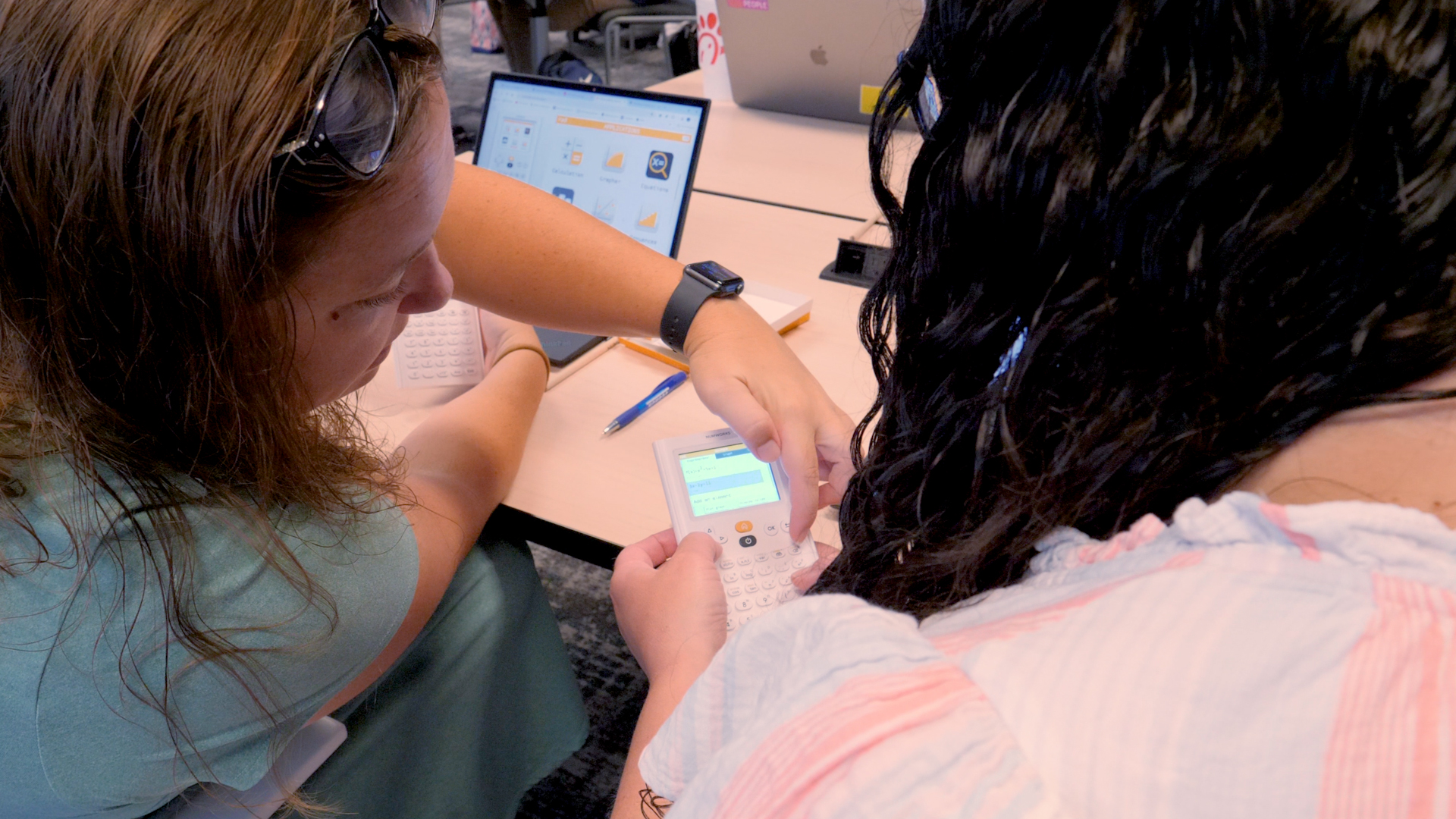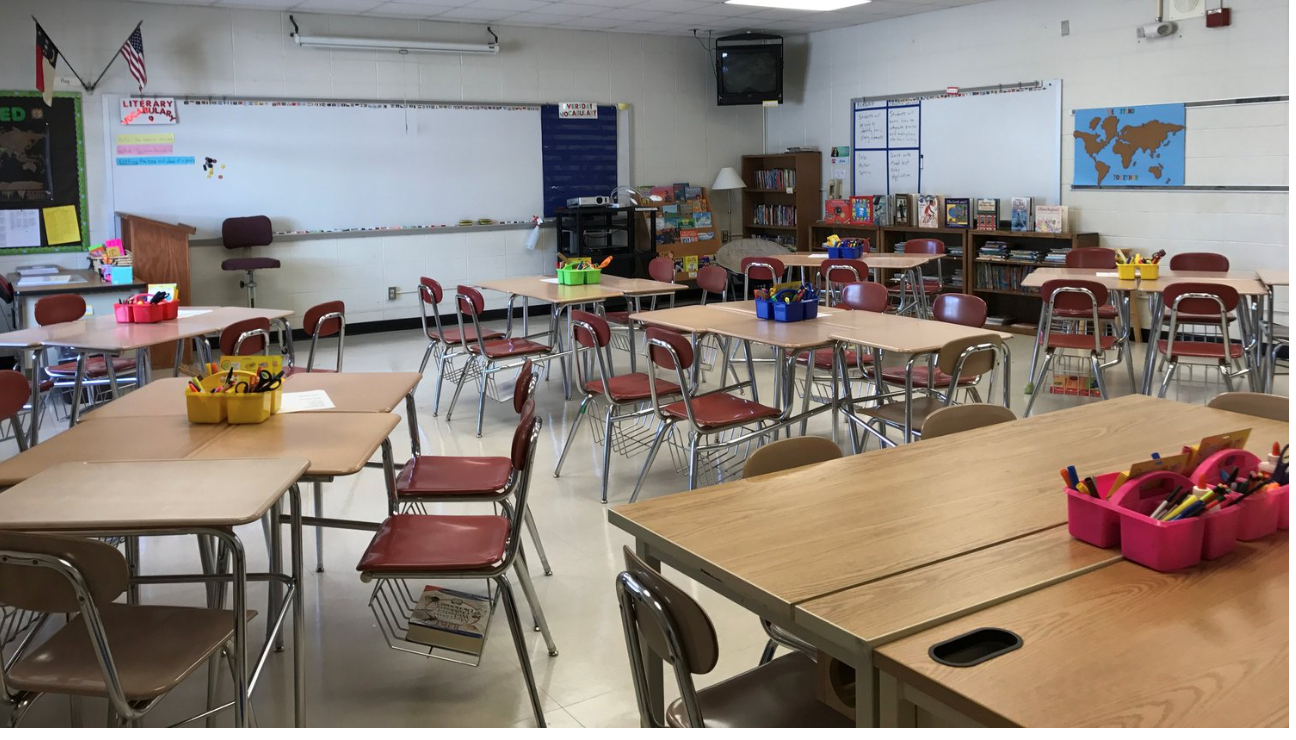Angel Morgan ’22PHD: ‘I Hope to Contribute to the Research and Development of Technology Frameworks and Products That Enable All Learners to be Part of an Inclusive Learning Community’

In 2021, Angel Morgan ’22PHD started an internship at the Center on Inclusive Technology in Education Systems (CITES). The center, which is affiliated with the Center for Applied Special Technology (CAST), is dedicated to empowering school districts to create inclusive technology that serve all students, including those with disabilities.
For Morgan, who was inspired to pursue a career in educational technology after seeing the impact it had on the learning experiences of her two neurodiverse teens, it was the perfect fit.
Initially, the goal of her internship was to complete a literature review about how district leaders, school leaders and classroom educators engage families of students with disabilities when planning for, implementing and using technology. But while conducting the literature review, Morgan discovered a significant research gap, and the CITES team invited her to continue working with them on a study to help fill it.
She decided to pursue that study as her dissertation, which involved seeking input from family members of K-12 public school students with an individualized education program (IEP) or a 504 accommodation plan about practices employed by education leaders and K-12 classroom educators for equitably engaging families in technology selection, implementation and use.
To conduct her research, Morgan first administered an online survey to families across the U.S. to obtain their feedback on the topics that education leaders and classroom educators solicit family input about and the communication methods used. Her next step was to conduct focus groups of a voluntary subset of survey participants to learn about the impacts of family engagement practices. Then, she combined survey and focus group data to identify a set of practical recommendations from families of students with disabilities for effective family engagement in technology initiatives.
Morgan hopes that, going forward, “more educational leaders and educators will include families when selecting, implementing and using technology to create more inclusive learning experiences.”
As she prepares for graduation, Morgan is working to help make that happen by continuing to work in a volunteer capacity with the CITES project as they implement her study’s findings with six school districts across the country during the 2022-23 school year.
Learn more about Angel Morgan
Hometown: Dundalk, Maryland
Degree: Ph.D. in Teacher Education and Learning Sciences: Learning Design and Technology concentration
Activities (Research or Extracurricular):
During my first two years, I completed professional certificates offered by the Graduate School and the Office of Faculty Development. During the summer of 2021, I was a teaching assistant for [Associate Professor] Julia McKeown and, during the summer of 2022, I was a research assistant for the eWolf project with [Associate Professor] Cameron Denson and [Senior Director of Student Success] Alex Kappus.
Why did you choose the NC State College of Education?
It was close to home — I live in Cary — and has several faculty members pursuing research in areas that interest me: educational technology and inclusive learning.
Why did you choose your concentration?
As a mom, I experienced how well-designed technology facilitates inclusive learning experiences for my two neurodiverse teens. This inspired me to make a career shift from working in the healthcare technology field to educational technology.
What’s your next step? What do you have planned after graduation?
I am pursuing a new position within an educational research organization or educational technology company that focuses on inclusive learning experiences.
How has the College of Education prepared you for that next step?
Coursework readings include current research articles that provide a great foundation for understanding the educational research landscape and how the research is applied in practice. Additionally, most assignments are project based, so I was able to explore different facets of my research interests within each course.
What do you hope to accomplish in your field?
I hope to contribute to the research and development of technology frameworks and products that enable all learners to be part of an inclusive learning community.
Do you have a favorite memory from your time in the College of Education?
My favorite memory is lunch meet ups with other doctoral students and faculty members before the pandemic.
Tell us about an experience you had with the College of Education that had the biggest impact on you or your career.
Projects in the technology and informal learning environments class with [Professor and Department of Teacher Education and Learning Sciences Head] Kevin Oliver had the biggest impact on me and my career. I took the class during the fall of 2020, when I was trying to balance working full time from home, being my son’s 1:1 during remote learning and taking two graduate courses. Class projects allowed me to include my kids in building various STEM projects and document my experience completing the project with them. This experience challenged me to create STEM learning experiences that both my oldest teen, who is developmentally four years old, and my academically gifted youngest teen could enjoy.
Why did you choose education?
I chose education because of the positive impacts that my teachers had on my life and the impacts that my teens’ teachers have on their lives.
- Categories:


